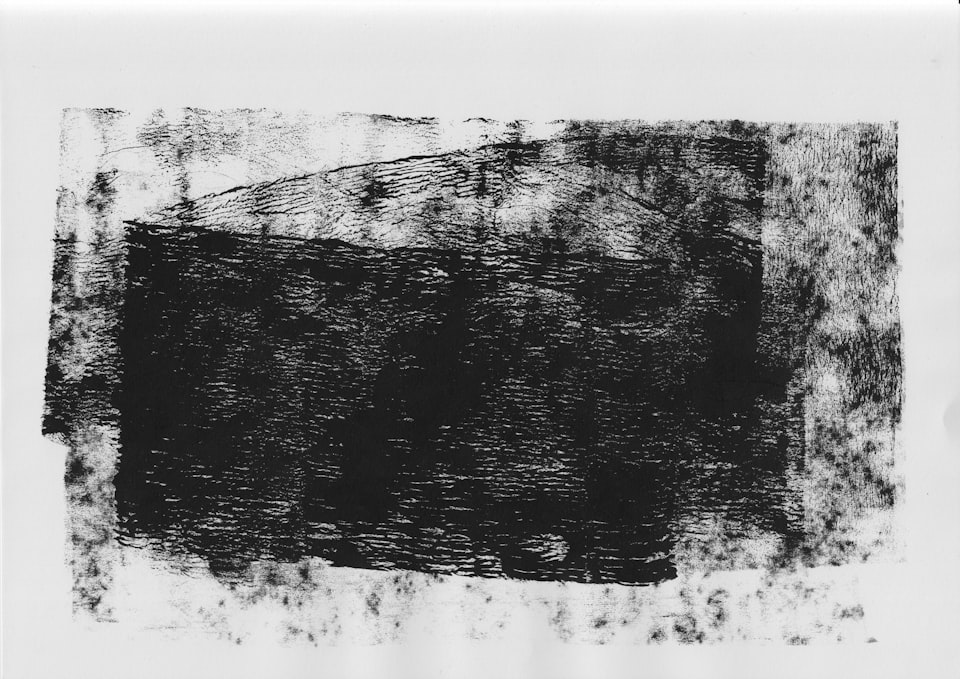A dream of a wake

A crowded bus that was also a wake. It wasn't when I embarked but somewhere between Glasgow and Cornwall it became so, dark and raucous, and I wasn't sure I was supposed to be there. But there was a journal being passed around with an ink bottle and a mid-century dip pen, to write down remembrances and messages to the man who'd died, a science fiction writer.
The ink was oxblood or it was black or it was blue, but what it was when I wrote was dark, darkening the page where I'd finally found a blank space. Someone kept trying to talk to me as I wrote, engaging me in conversation, asking if the deceased and I had ever had "swiss tea" together, and I had to stop and think and wonder, but no, we hadn't.
What I was writing was that I wished we'd had more time, had conversations, wished I could have gotten to know him, wished I could have claimed him as an influence. Somewhere it came into my head that he'd been a communist, that he'd spent his life labouring for a better world, and I wrote to him that I wished he could've seen a better world emerge out of the wreck of this one. I found myself hoping that I could see that. I thought of Disco Elysium and cryptids and the words SOMETHING BEAUTIFUL IS COMING and woke with Maggie Smith's "Good Bones" in my head, and ran to my desk to write this.
Something rattled in me then, a half-memory of standing in George Square in 2014 during the Scottish independence referendum, reading signs held up by hopeful young people that read vote like you live in the early days of a better nation. A reference to Alasdair Gray, who died in 2019, who wrote Lanark and several other novels, but whose only work with which I'm acquainted is the mural he painted at Hillhead Station and a poem he helped write in an anthology of Palestinian and Scottish poetry called A Bird is Not a Stone.
I wanted to make sure I remembered his phrase correctly, so I looked it up, and learned that Alasdair Gray's "work as if you live in the early days of a better nation" – one of the 24 inscriptions on the Scottish parliament's Canongate wall – was his adaptation of lines by Canadian poet Dennis Lee, who wrote, in his 1972 long poem Civil Elegies, the following:
And best of all is finding a place to be
in the early days of a better civilization
Intrigued by a Canadian connection, and wondering why the name Dennis Lee seemed familiar to me, I read down his wikipedia page, and learned that in addition to Civil Elegies – winner of the Governor General's award, and lauded as "an uncompromising exploration of citizenship, both Canadian and human" – Dennis Lee is also the author of children's book Alligator Pie and the lyrics to the theme song of Fraggle Rock.
(This may mean less to the non-Canadians reading this, but I also learned that for a time bpNichol worked as a writer on that show. The fact that this never once came up during any of my CanLit courses in university is a massive indictment of the whole edifice of post-secondary education.)
But back to Dennis Lee, who in addition to being the author of a childhood earworm and adulthood heartline, co-founded House of Anansi Press in 1967 – one of Canada's most celebrated independent publishers. In 2002 House of Anansi press was purchased by Scott Griffin – endower of the Griffin prize for poetry, and subject of a harrowing and provocative longread on the subject of cultural laundering, and the whole of it becomes some pulsing tangle of the distance between civilization and nation and the necessity of poetry to both.
I'm not sure where I'm going with this, except that I feel a web of connection constellating before me and feel some urge, some responsibility, to chronicle it. The dream felt so singular and strange, like I was in a hallway between worlds, like there was a weight to every action, every word. Tracing its furrows while awake led me through this spiralling dance, illuminating my recent travels and all the rituals of mourning I performed among them, none of them like this – from a dream of a wake to the waking dream of a better world, its reach always exceeding its grasp, spindling lives between the stretch of its fingers.
Good Bones
by Maggie Smith
Life is short, though I keep this from my children.
Life is short, and I’ve shortened mine
in a thousand delicious, ill-advised ways,
a thousand deliciously ill-advised ways
I’ll keep from my children. The world is at least
fifty percent terrible, and that’s a conservative
estimate, though I keep this from my children.
For every bird there is a stone thrown at a bird.
For every loved child, a child broken, bagged,
sunk in a lake. Life is short and the world
is at least half terrible, and for every kind
stranger, there is one who would break you,
though I keep this from my children. I am trying
to sell them the world. Any decent realtor,
walking you through a real shithole, chirps on
about good bones: This place could be beautiful,
right? You could make this place beautiful.
Member discussion